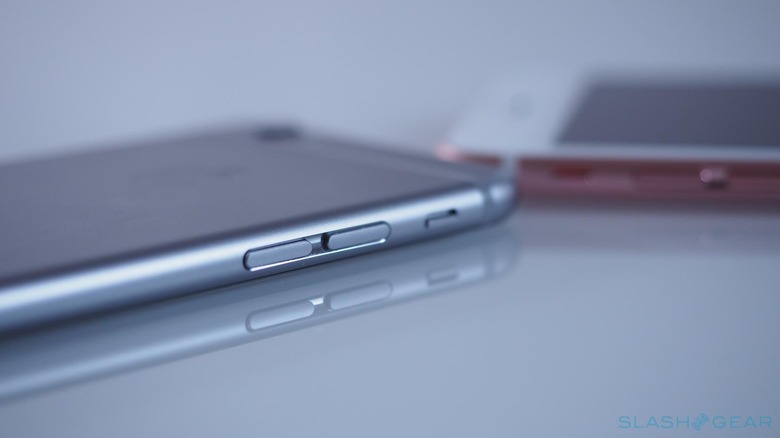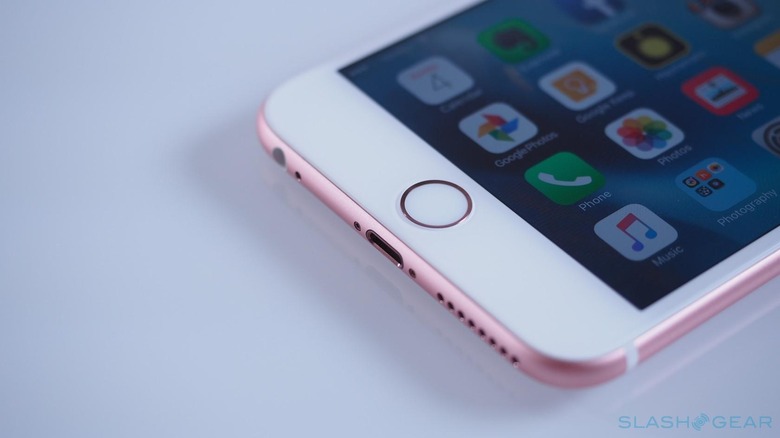Apple's Good Reason For Slowing Old iPhones Won't Help
It's fair to say that Apple's admission this week that no, your old iPhone getting slower isn't just in your imagination, has proved divisive. For years, the idea that an older iPhone would perform more slowly than it once did was dismissed as paranoia. Now, it turns out, Apple actually is adjusting power profiles on handsets like the iPhone 6s and iPhone 7, arguing that it's doing it for good reasons.
The justification, as Apple sees it, is that the performance of lithium-ion batteries degrades as they age. On the one hand, there's the fairly well-known tendency for them to hold less charge. As a result, your iPhone – or any device using a li-ion battery – won't last as long away from its charger.
However the ability to provide peak current also degrades, and that causes another set of problems. In short, the ability of the battery to deliver the sort of current levels occasionally requested by the iPhone's processor while performing system-intensive tasks is reduced. Because it can't keep up, the iPhone can go into a protective shut-down so as to protect its other components.
That's what iPhone 6 and iPhone 6s owners were complaining about at one point, to which Apple pushed out a software update to iOS which changed how power was managed. In the name of avoiding these unexpected shut-downs, the new version of iOS would spread out some of the demands placed on the processor. A subsequent update, iOS 11.2, extended that behavior to the iPhone 7 in anticipation of the batteries in that generation of handsets also aging and showing the same symptoms.
Apple, in a statement this week, described that as an effort to "smooth out the instantaneous peaks only when needed to prevent the device from unexpectedly shutting down during these conditions." What it appears keen to avoid is any suggestion that it's artificially "throttling" the processors on its older devices, which could see it accused of purposefully downgrading the overall experience. Nonetheless, for the iPhone owner themselves, the end result may not be different regardless of how it's explained.

On the one hand, it's easy to see Apple's decision process here. Crashing iPhones are bad for business – the last thing it needs is to get a reputation for unstable hardware – and lithium-ion battery degradation is a scientific fact. Ironing all that out with a software fix is a fairly straightforward way to address it.
All the same, it's also not difficult to see why iPhone owners might be frustrated. For years they've been told that no, any slow-down in their handsets is just their imagination, and yet suddenly it becomes clear that that's not in fact the case.
That's despite Apple making some attempts at communicating its thinking. Back when it released the first version of iOS which introduced the peak-smoothing system, iOS 10.2.1, it suggested that the spikes in the iPhone's activity was no longer having such a widespread impact on phones and causing them to shut down. However, while some in the tech press attempted to explain the reasoning, the exact method employed – and the impact on performance – was never explicitly communicated to users.
Instead, Apple opted to bake a "Your battery needs service" message into iOS. That shows up when the li-ion pack was particularly close to being end-of-life, and in need of replacement. As has been observed over the past few days, however, that message shows up fairly late, after many owners begin noticing their iPhone has begun to slow down.

For all Apple's decisions may make sense on paper, it's clear that they've been less enthusiastically received by iPhone owners themselves. The fact that Apple led the smartphone industry in the shift to non-removable batteries particularly rankles. A new battery may stop your old iPhone from crashing unexpectedly, or bring it back to its original performance, but it's not especially easy for the average owner to replace.
Could Apple have communicated all this better? Certainly: leaving it up to the tech press to decode seems to have backfired, with owners rightly pointing out that they're Apple's customers and they deserved to get a direct message. It doesn't seem out of line to suggest that iPhone owners should know how their device is being managed, even if Apple is doing it for what it would argue are good reasons. Doubly-so, when you remember that the company has also said it plans to keep doing the same thing for future devices.
In short, employing power profile management to stabilize older iPhones with the result that they don't perform as well as they once did isn't necessarily a bad idea, but Apple really needed to explain that's what it was doing. Instead it finds itself back in a morass of "planned-obsolescence" accusations, with users skeptical that the fix employed wasn't in fact a calculated ploy to encourage upgrades to newer iPhones as they were released. For a company that stresses the detail of its messages so obsessively, that's a rare glitch, but it's one that could prove difficult to get past.
